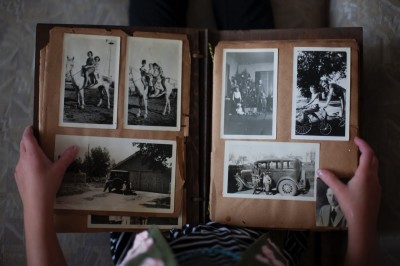The significance of obituaries

Yesterday, as I was reading The Wall Street Journal editorial pages, I came across a very thought-provoking piece, “An Obituary Is the Story of a Life, Not a Death” by Danny Heitman.
I confess to reading the WSJ every day it is published. I do so for two reasons. First, I really enjoy the information and perspective I gain from doing so. Second, it helps me to calm down and recover my emotional and intellectual equilibrium after I have read The New York Times every day. My relationship with the Times started when I was a freshman in college, matriculating approximately 50 miles from the Big Apple itself.
I fear that over the decades my daily appointment with the Times has become more of an addiction than a pleasure as the Times has declined catastrophically from its former greatness.
However, I digress. Getting back to the op-ed by Mr. Heitman. As his title asserts, an obituary is the story of a person’s life, not their death. As he confesses, when he was assigned the task of writing obituaries for a periodical, “I didn’t relish the thought of sitting at a keyboard and focusing on the departed.” He quickly learned, however, that “A good obituary isn’t a story about death; it’s a celebration of life.”
As I read these words, I stopped and pondered their wisdom. I have been a regular reader of the obituary column of several newspapers (as well as the obituaries in my Princeton Alumni Weekly) both because I find them fascinating, and in the case of the NYT’s obituaries, frequently very informative. Also, I increasingly look to see if among those being memorialized are people I have known at earlier periods of my life.
I have often thought that we would be better people if we spent more time thinking about — and investing in — how our obituaries will read and less time focused on resumes and press releases.
We have heard it said, many times, that when we are ushered into eternity, we will leave everything behind, because “you can’t take it with you!”
The one thing each of us does leave behind is the legacy of the life we have lived, the people we have touched, and the difference we have — or have not — made on the world around us.
As I thought about this yesterday, a person came to mind who was a powerful example of this profound, but simple truth. This person was a prominent ophthalmologist and businessman who grew up in upstate New York and after medical school set up a medical practice in Alabama.
The doctor was a Baptist minister’s eldest son, and as a child of the parsonage, he was a man of probity, humility and generosity. As his professional prominence grew, he became increasingly affluent.
It was not until his death that those of us who knew him discovered just how generous a man he was, and how he lived out his convictions.
As preparations were being made for his memorial service, his family members were overwhelmed at the outpouring of affection and respect that came from all segments of the community because of his countless acts of quiet, unpublicized generosity to people in need. Perhaps most surprising to the family were the expressions of gratitude and appreciation that came from the black community in that part of Alabama. As a prominent member of the white establishment in the 1950s, '60s, and '70s Alabama, he had reached out to help those victimized by segregation and racial prejudice.
Numerous black pastors came forward and asked if they could finally publicly acknowledge and pay tribute to this man who worked quietly behind the scenes anonymously as a peacemaker, as a source of funding for important projects, and as a provider of scholarship funds for deserving students, white and black, who did not have the financial resources to continue their education without help.
This physically large and imposing man, quiet in his demeanor in public and private, had been a beacon of hope and assistance to those in society too often treated harshly and unfairly. And, he did so, insisting that he receive no credit or publicity.
I thought at the time, what a godly legacy. What an inspiring example to follow. What a lifeline it must have been to many of the black pastors and community leaders to know they could always go and see “the good doctor,” and he would help, intervene, and provide assistance whenever he could.
I know that I have never forgotten his example of a life well-lived. The “good doctor” has been an inspiration to me down through the ensuing decades.
I hope you will join me during this holy holiday season in thinking about our obituaries, our legacies, and resolving to make the best use of the remaining days of our earthly existence, however few or many they may be, to be the salt and light Jesus called us to be.
May we all resolve to live lives ever more worthy of an inspiring and lasting legacy after we have departed this earthly sojourn.
Dr. Richard Land, BA (Princeton, magna cum laude); D.Phil. (Oxford); Th.M (New Orleans Seminary). Dr. Land served as President of Southern Evangelical Seminary from July 2013 until July 2021. Upon his retirement, he was honored as President Emeritus and he continues to serve as an Adjunct Professor of Theology & Ethics. Dr. Land previously served as President of the Southern Baptist Convention's Ethics & Religious Liberty Commission (1988-2013) where he was also honored as President Emeritus upon his retirement. Dr. Land has also served as an Executive Editor and columnist for The Christian Post since 2011.
Dr. Land explores many timely and critical topics in his daily radio feature, “Bringing Every Thought Captive,” and in his weekly column for CP.



























